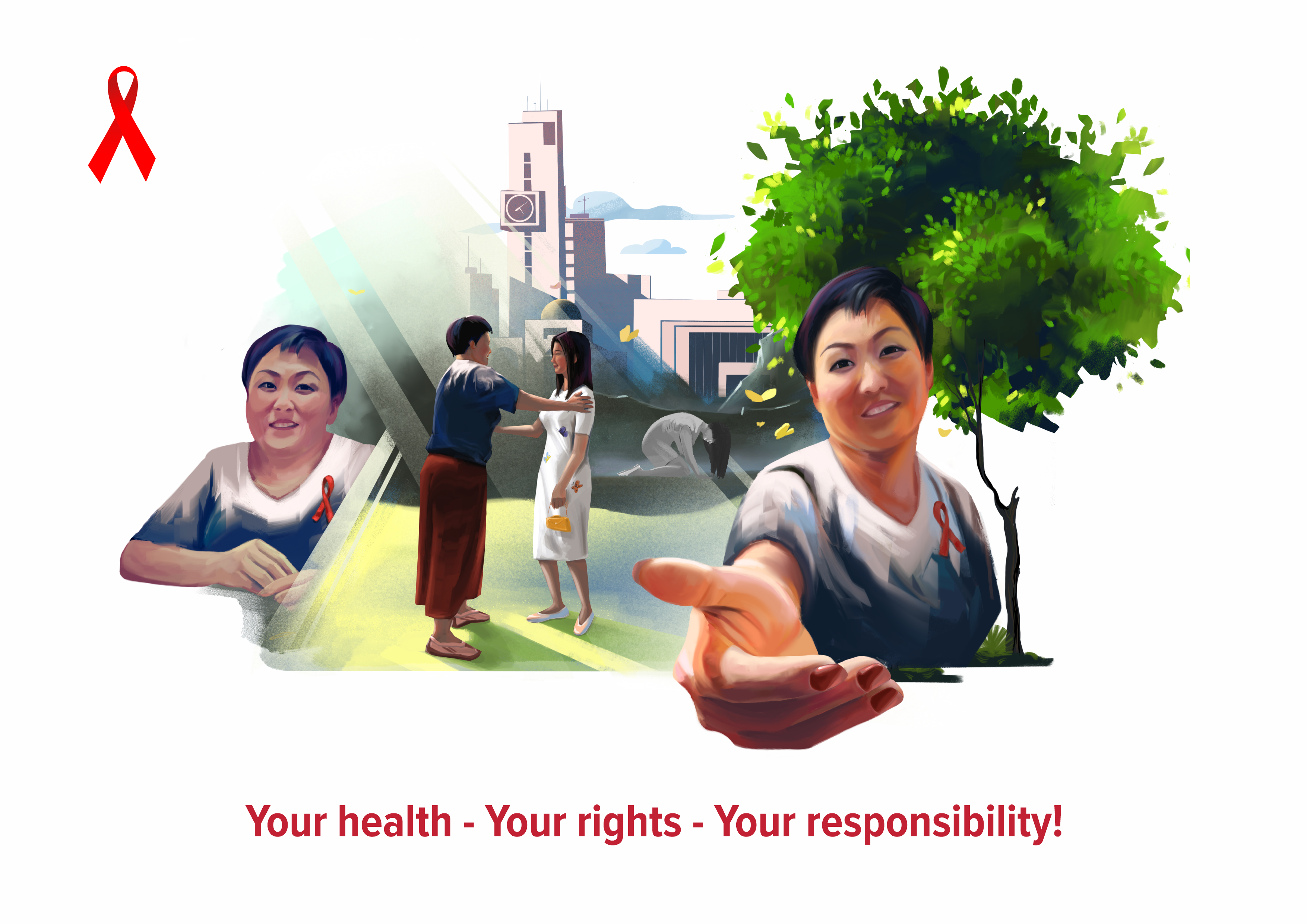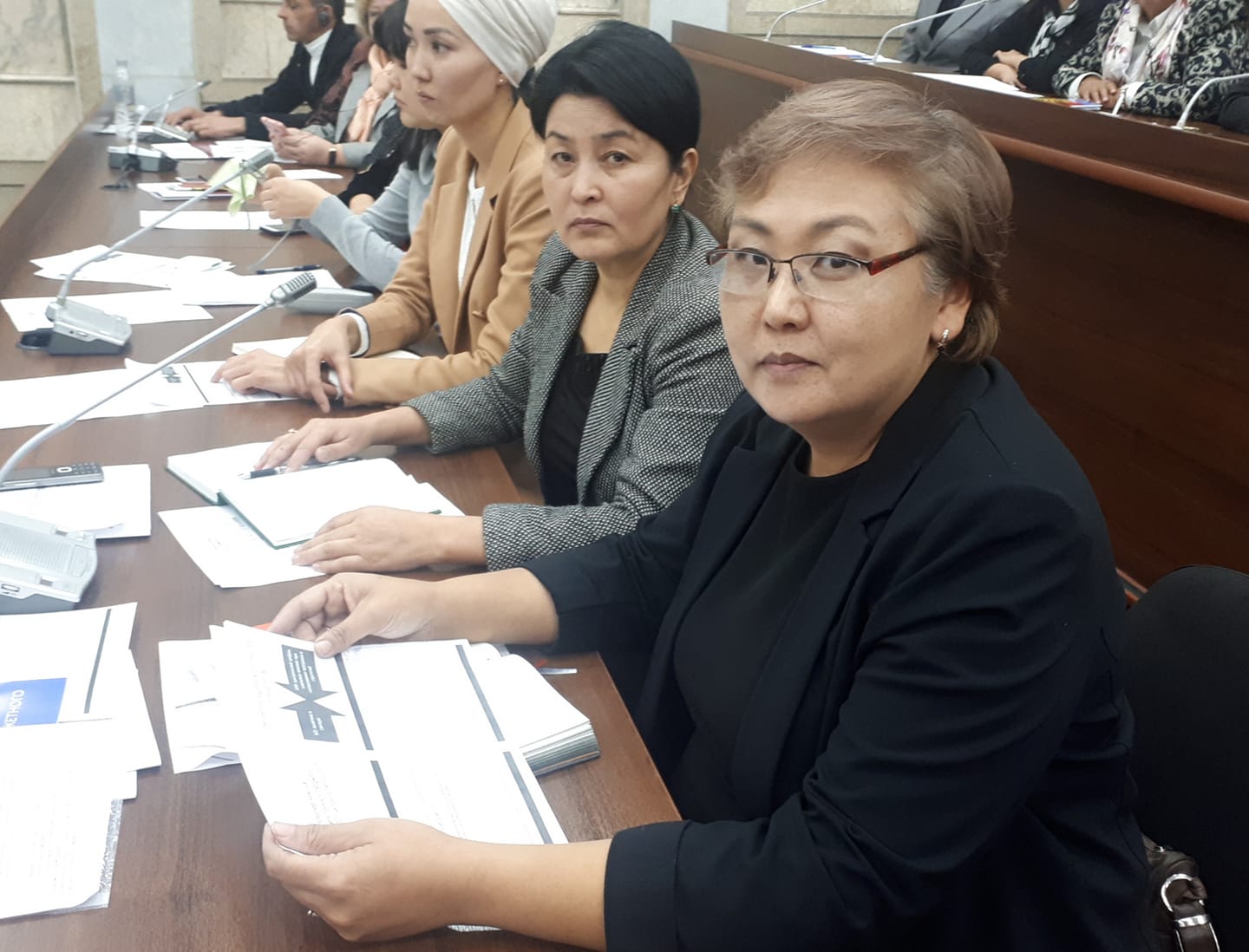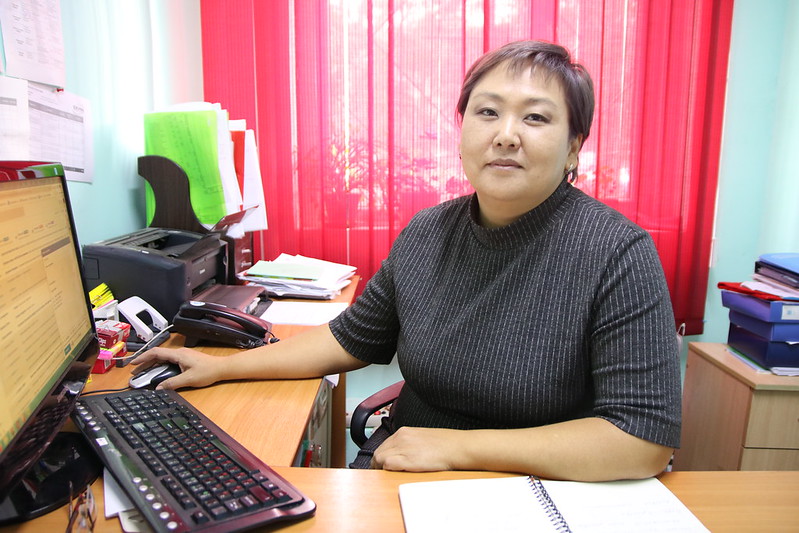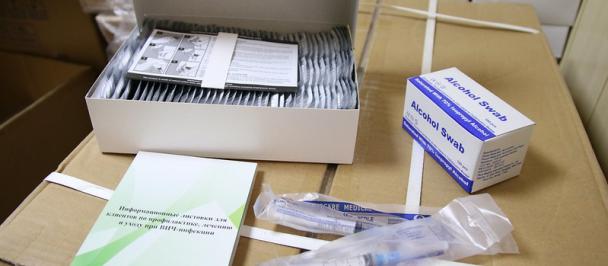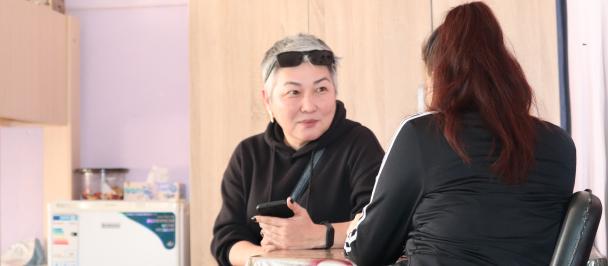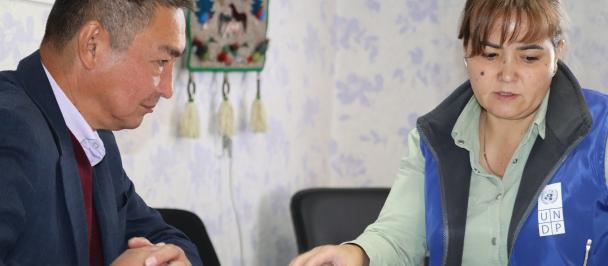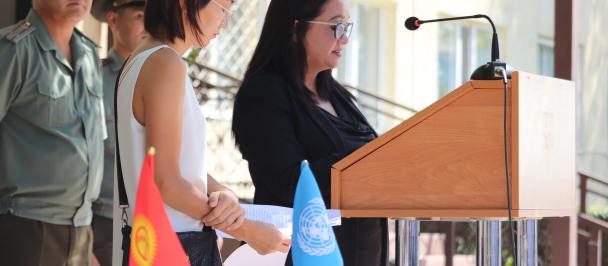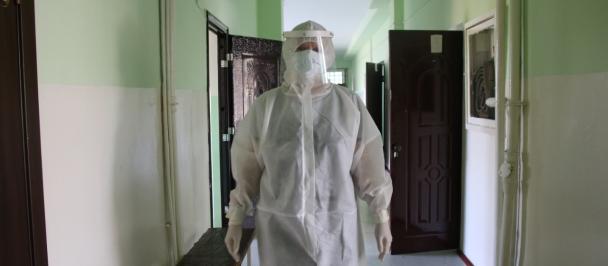Chynara has a unique collection of objects on her desk. It might seem strange to the outside eye, but for her clients, these empty vitamin boxes can be lifesaving: “Many people living with HIV refuse to take their antiretroviral therapy because of stigma. Sometimes, even their wives or mothers don’t know about their status. So I tell them to put their pills in these boxes. Most people who were refusing therapy accept to take it after discussing. You just need to find the right approach to each person, to understand what the problem is.”
Chynara is an ardent activist of the HIV fight, but not only: she’s always ready to give a hand to someone who has fallen. “I’ve always wanted to be a lawyer, but the studies were too expensive back then. Even when I was a child, I helped my mother at her work as a janitor in the evenings: I helped her clean not only offices, and I was so offended by what some people put my mother through that I constantly put up signs asking for people to respect her work.”
Although Chynara wasn’t able to study in the field of law, she’s become a lawyer de facto, defending the rights of the most vulnerable, and she’s ready to move mountains to save someone who has collapsed.
Empathy and conviction
Many are the clients who say that Chynara has changed their life for the better, or even saved them, pulling them out of depression, misery and despair. She gives them a second take at life, helps them find a reason to live, a job, distributes humanitarian aid, supports them morally and may even help them pay their rent on her own money if needed. In her free time, Chynara works as an expert at the Jogorku Kenesh’s gender council and volunteers at the Red Crescent.
“I love working with people,” says Chynara. “My life credo is to help the vulnerable. I’ve always wanted to protect victims, vulnerable women, and people who suffer from discrimination and violence.” Chynara’s own life experience has taught her strength and perseverance: she had tuberculosis in her childhood, had to get a divorce at a young age, beat cancer, and even faced stigma simply for working in the HIV sphere. “When I was pregnant, my doctor wanted to make me abort just because I was working in the HIV field. She called me or came to see me every day until the 25th week of my pregnancy,” she remembers, outraged by this nonsense. Chynara is not living with HIV and there were absolutely no risks of her baby contracting the virus – and people living with HIV can have perfectly healthy children thanks to ART.
Chynara always stops by when she sees a woman with a child at a bus stop and offers to drive them home, because she went through this herself. “My life made me strong, my life gave me wings. You have to prove that you’re better than what people think of you. My mom always said: ‘When things are going bad for you, think about those for whom it’s worse’.”
“I feel a lot of empathy for patients and for victims of violence. Many don’t know the laws or experience discrimination, and they start to fall, to collapse. Laws and practice differ, and I want to change that,” says Chynara. For many of her employees, Chynara is much more than a manager. She’s a friend that they entirely trust and, for some, she’s the only person in the world who knows about their HIV status. “I don’t even know how to explain how much I love this job, I don’t know what words to use,” she says, as she cooks lunch for the office.
Working to end AIDS
Now, Chynara is the director of the AntiAIDS Association and works in partnership with the UNDP / Global Fund project. But her fight with HIV started long ago, when she was a math teacher at university. “I had a lot of students from the villages and, once they arrived here, they had no parental control. My first lessons were always about HIV and STIs, even if that had nothing to do with my subject. I wanted to teach them life in the city,” she says, smiling at these memories. “As a teacher, I understood that there’s no attention given to the prevention of diseases. There’s no sex education in schools, and we could see that in the youth’s behavior.”
In her long career in HIV control programs, Chynara has been at the initiative of many innovations and partnerships. “We got everyone together, from different fields, involved them in the fight and, thanks to this, many people learned about HIV,” she says. Her association also led the first pilot project for express testing in Kyrgyzstan, which proved very effective: “We diagnosed more people and showed that NGOs can convince people to get tested and treated better than some doctors. Testing shouldn’t be done just by health care workers but by outreach workers as well, and now, this has become the norm.”
Despite the many victories Chynara has witnessed in HIV control programs, she says there are still many barriers to eliminating AIDS. “I see that we still haven’t beaten this illness, and I will continue working until we do.”
Sunshine after the storm
For Chynara, this year’s slogan for the national World AIDS Day campaign – “your health, your rights, your responsibility” is very relevant. “Responsibility for health lies on each citizen. Many people go to hospitals too late and then blame doctors. But how much have you done for your health?” she says, remembering her years as an athlete. “Health is your choice. And it’s the government’s role to remove barriers and encourage people to lead a healthy life style. People in power should be examples; they should be healthy, athletic and positive.”
When it comes to HIV, patients have to suffer much more than health problems, which is where they need support. People living with HIV are often the victims of stigma and discrimination, are thrown out of families and hospital, see their rights violated and many end up on the street, with nothing but their frightening diagnosis.
“I have met many people who really wanted to live and survive, and that taught me a lot,” says Chynara. She is always fighting to pull her clients back on their feet, to prove to them that after the storm, the sun will shine again.
“It’s a long and constant process. What is more, many people living with HIV are from key population groups and have problems other than their illness. They are rejected by their family, are victims of violence, of phobia and discrimination. They live in extremely tough and frail situations.” During the night, one of Chynara’s clients tried to commit suicide – one of many cases she fights by giving them motivation. Each of her clients has their own story of grief and pain but here, in the office, they often gather, to cook plov for example and to forget about the crushing outside world.
They change office from time to time for security reasons, since many of her clients are victims of persecution. In the village where they are now, none of the neighbors know that this is an office and not a family home. As she gets ready for her next meeting, Chynara oils the gate which has started screeching – she tries to keep the back and forths of her clients as discreet as possible, at their request.

 Locations
Locations